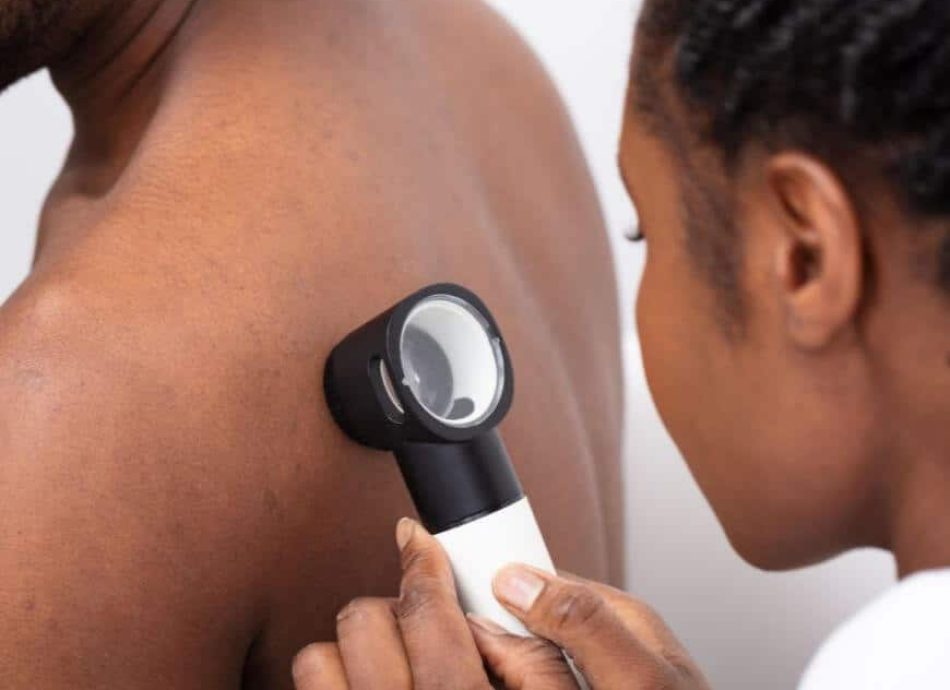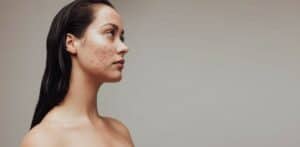Cryotherapy
Home » Treatments » Cryotherapy
Award winning dermatology service, with over 20 years on experience
Short waiting lists, on some occasions offering same week appointments
Safe environment, in Care Quality Commission approved facilities
Conditions we treat
CRYOTHERAPY IN LONDON
What is Cryotherapy?
Cryotherapy is a medical treatment where the body is exposed to extremely cold temperatures for a short period of time. The treatment can be done on specific body parts or on the entire body. Cryotherapy can be delivered in a number of ways, such as ice packs, cold water immersion or chambers where cold air circulates.
Can cryotherapy be an effective dermatology treatment?
- Skin cancer – it is occasionally used to remove small skin cancers that are on the surface of the skin.
- Basal cell carcinoma – cryotherapy is a nonsurgical treatment for basal cell carcinoma. The dermatologist applies nitrogen to the tumour, freezing the damaged tissue. The frozen skin falls off as the skin underneath heals.
- Actinic Keratoses – Cryotherapy can be used to treat precancerous skin lesions known as actinic keratoses. The treatment destroys the abnormal cells and encourages the growth of healthy new skin.
- Freckles and solar lentigos – this involves ‘freezing off’ the lesion in a quick and painless procedure using cold liquid nitrogen
- Warts and verrucas – Cryotherapy can effectively remove Warts and Verrucas by freezing them with liquid nitrogen. The treatment causes the wart to die and eventually fall off.
- Skin tags – Cryotherapy can also be used to remove skin tags. The process involves applying liquid nitrogen to the skin tag, which freezes and destroys the tissue.
- Psoriasis – Cryotherapy can provide temporary relief from the symptoms of psoriasis by reducing inflammation and itchiness.
- Acne – Cryotherapy can help reduce inflammation associated with acne, and may help to kill the bacteria responsible for causing breakouts
How does cryotherapy actually work?
FREQUENTLY ASKED QUESTIONS
IS CRYOTHERAPY PAINFUL?
IS CRYOTHERAPY SAFE?
WHAT ARE CRYOTHERAPY'S SIDE EFFECTS?
IS CRYOTHERAPY EFFECTIVE?
HOW MANY CRYOTHERAPY SESSION ARE REQUIRED?
REQUEST A CALL BACK
Please fill in this form and one of our team will give you a call back to arrange a consultation with one of our expert dermatologists.

WHY GET CRYOTHERAPY TREATMENT AT Stratum CLinics?
Safe and effective cryotherapy treatments near you. Stratum Clinics offer cryotherapy for patients who are looking for quick and effective removal of these lesions.
We are specialists in conditions affecting the skin, hair and nails. Our goal is to provide all the care that you need when you’re experiencing these kinds of problems. We want to make it easy for you to access the best quality treatment and support
Our clinics are conveniently located in Oxford, London and Cheltenham, so it’s easy to visit us if you need to see a Dermatologist. You will find yourself in a very comfortable and welcoming environment. We have created a relaxing space where you will receive the highest quality of care. We are regulated by the Care Quality Commission, are part of the British Association of Dermatologists and are top-rated by patients of Doctify so you can be sure of safe and effective treatment with us.
latest INSIGHTS AND ADVICE

A Guide To How Podiatrists Treat Ingrown Toenails
Ignoring your feet can be dangerous. However, it’s not just about having a stylish and comfortable pair of shoes – it’s the health of your feet that truly matters. One of the most common and painful foot conditions affecting millions each year is the ingrown

Winter Skincare Routine: A Guide to Nourishing Your Skin
Table of Contents As the weather gets colder, the promise of cozy moments gets closer. But the winter season also brings unique challenges for our skin, body, and overall well-being. For some people (especially those with sensitive skin), winter is the time for cracked lips,

Acne Awareness Month 2023
Acne is one of the most common skin conditions, affecting a significant percentage of the population. Despite its prevalence, few people know that June is acne awareness month. This presents a perfect opportunity to delve deeper into the condition and answer some of the burning



